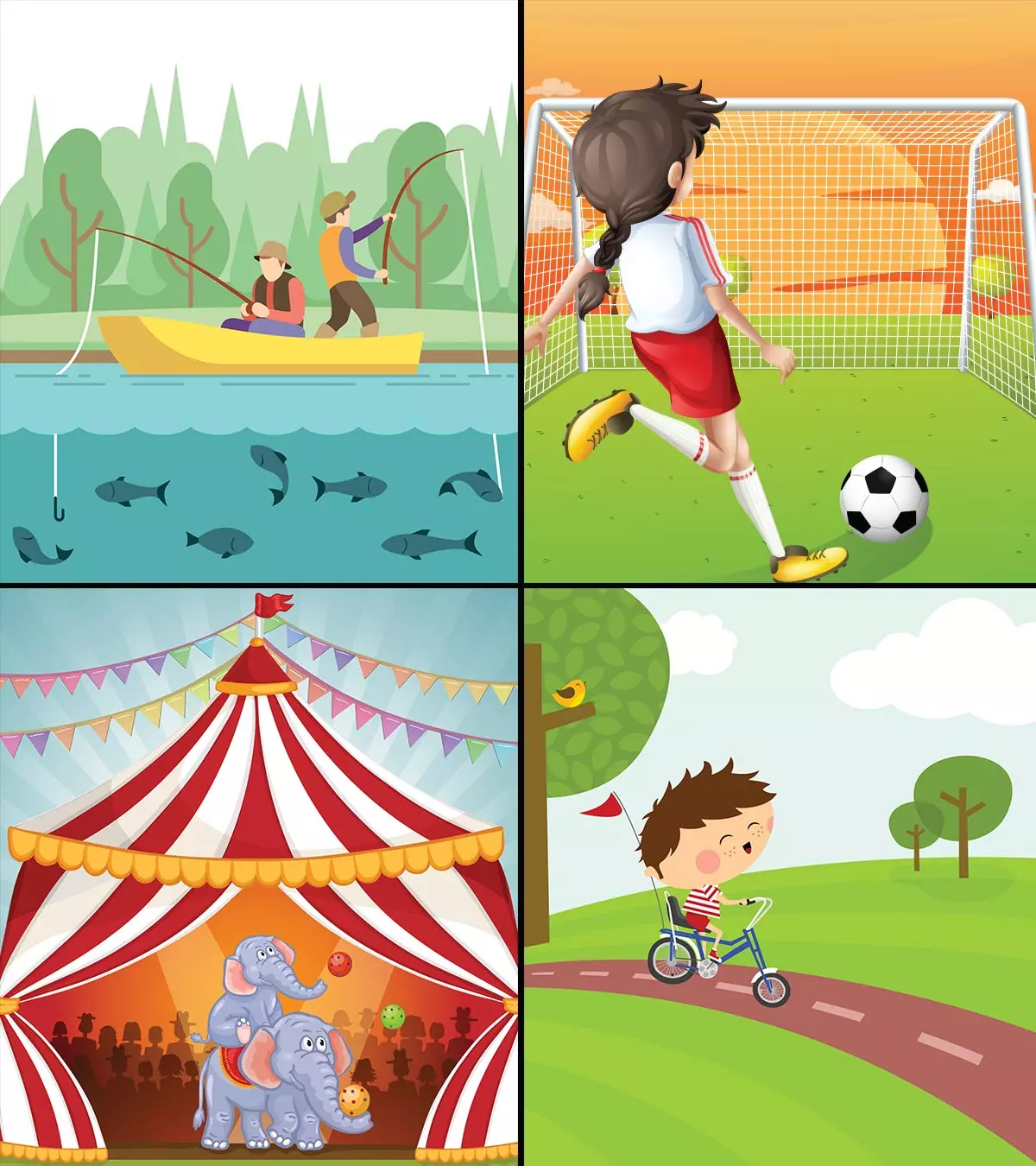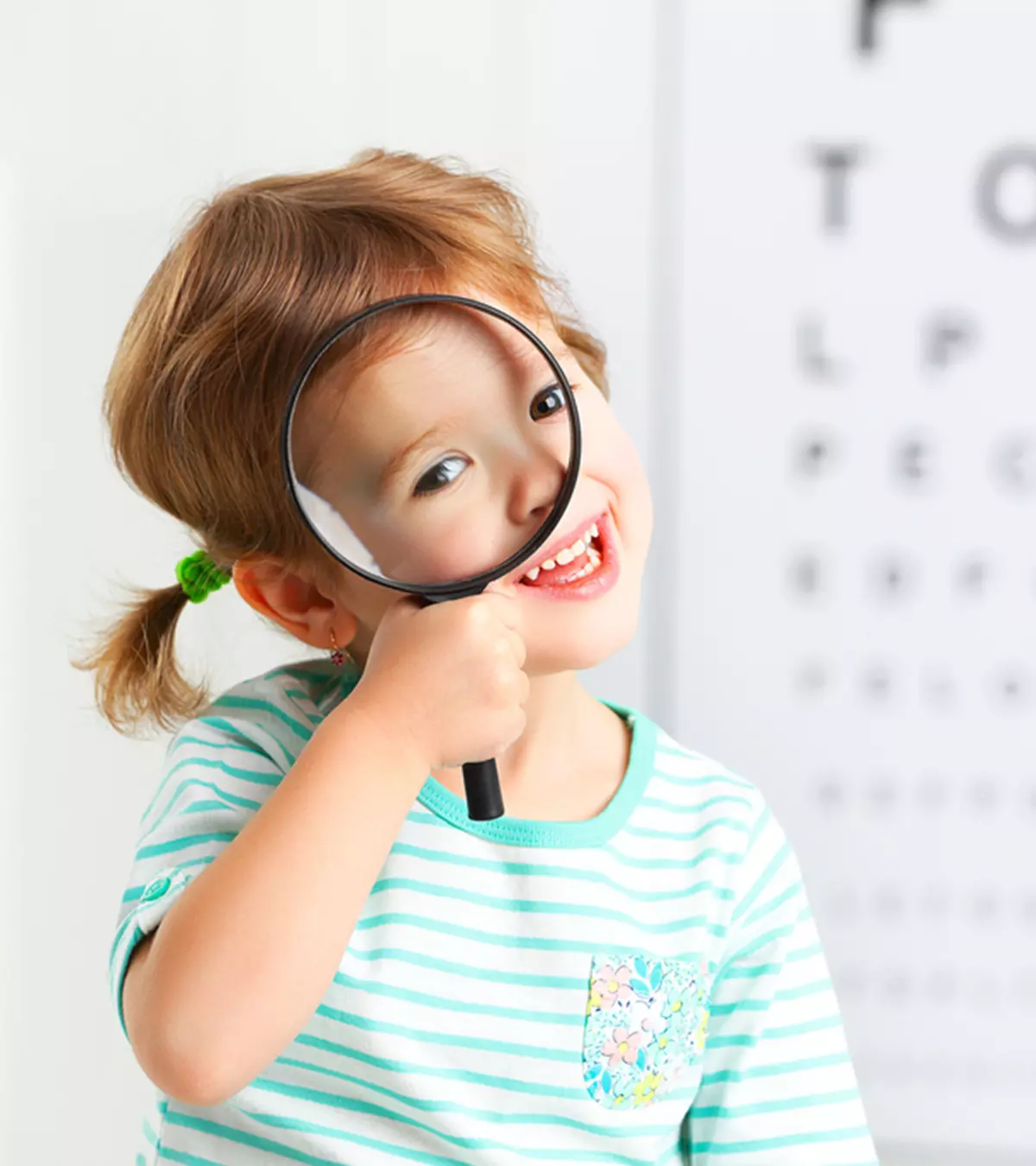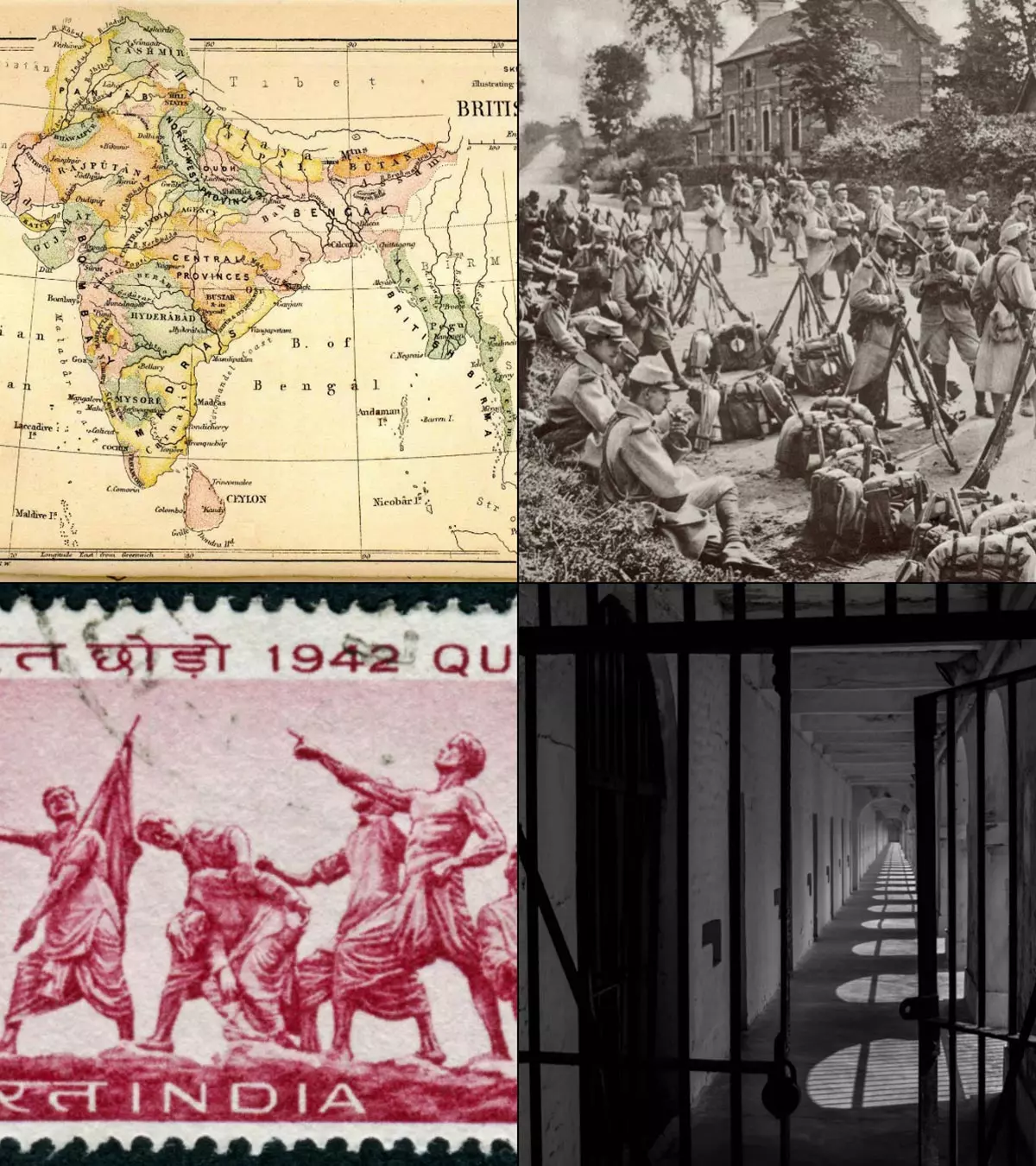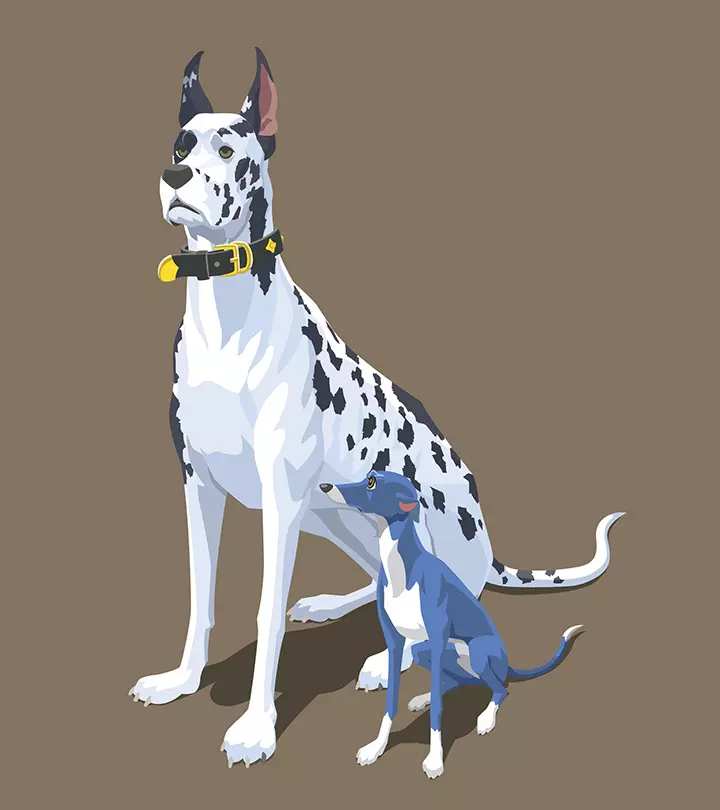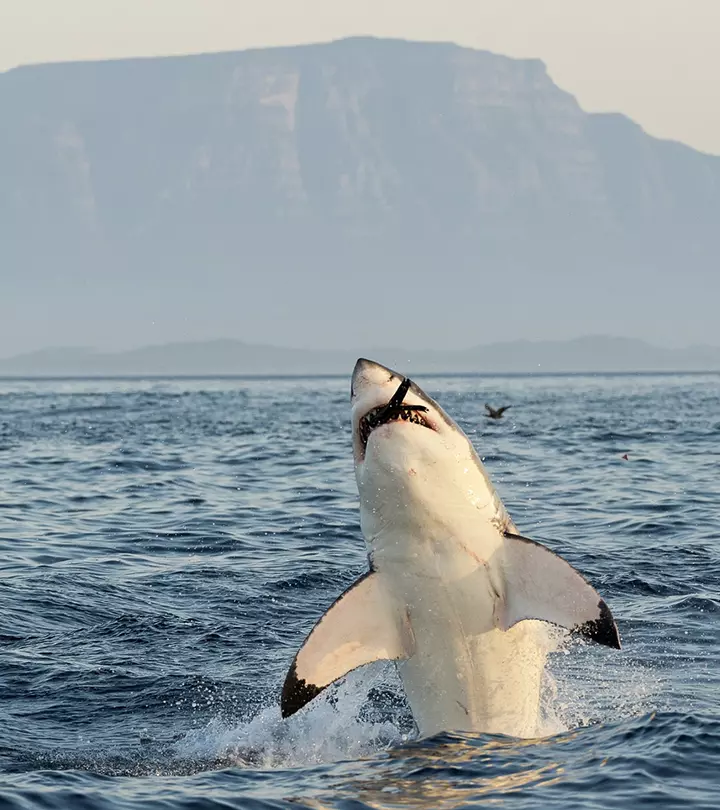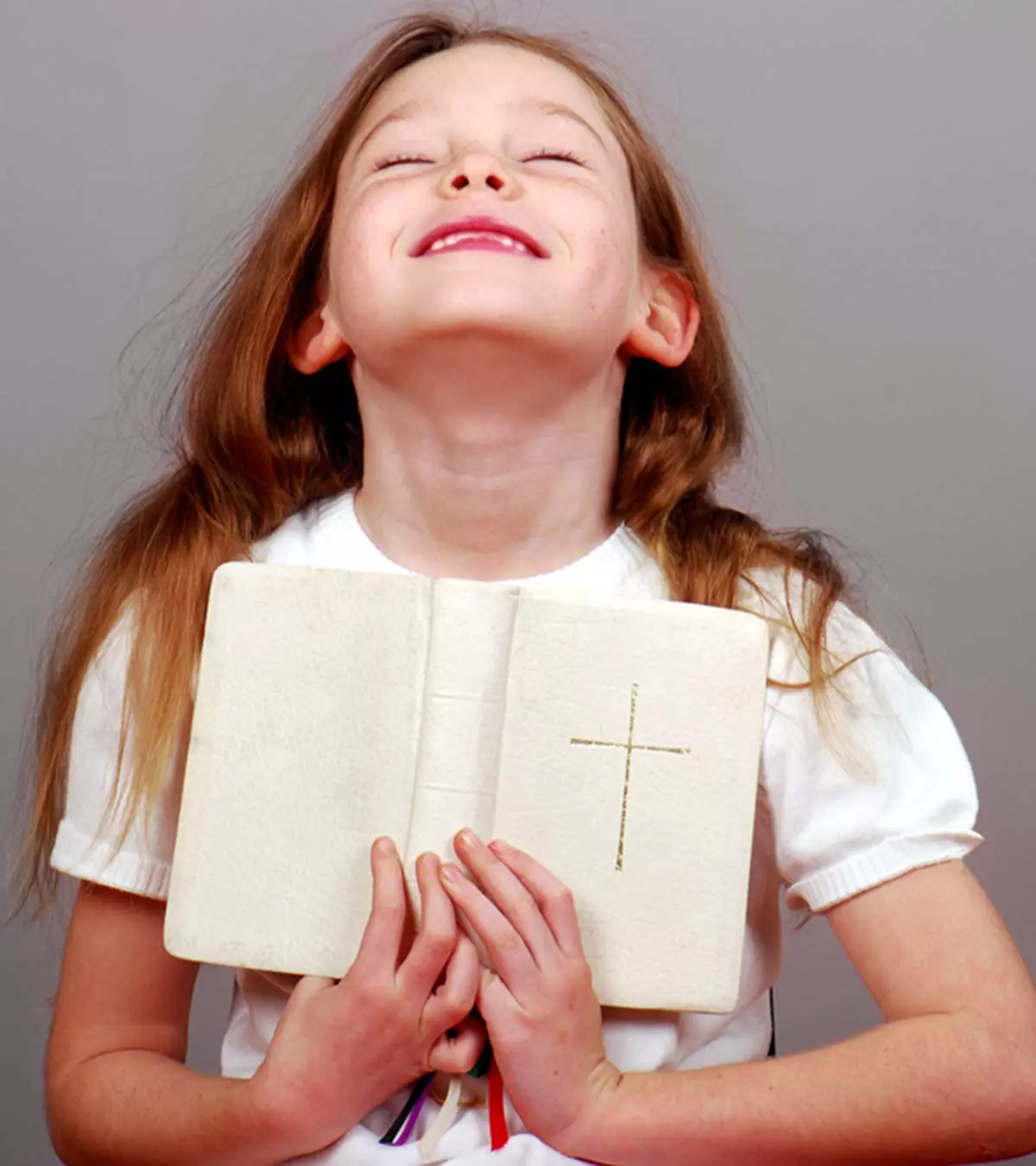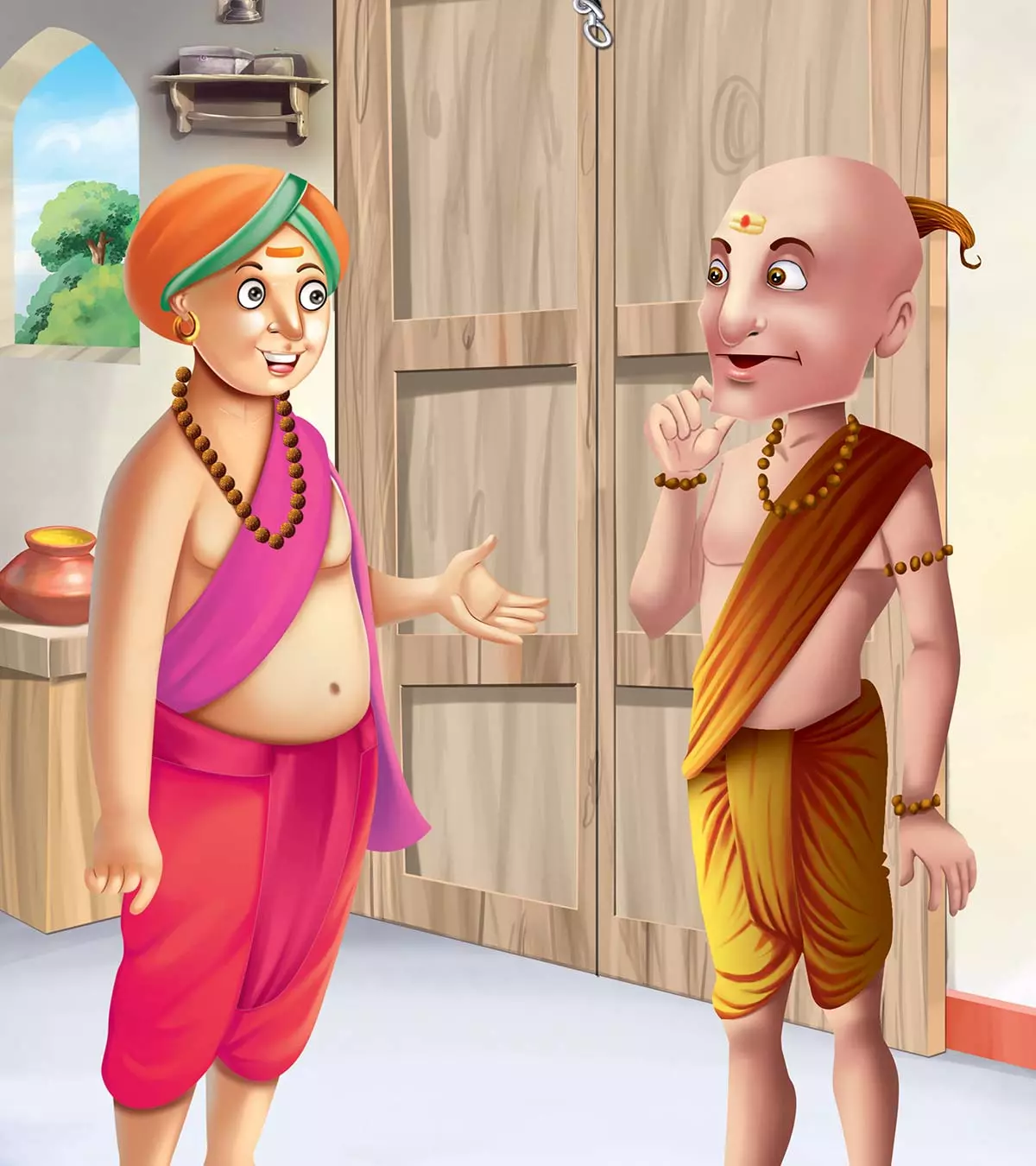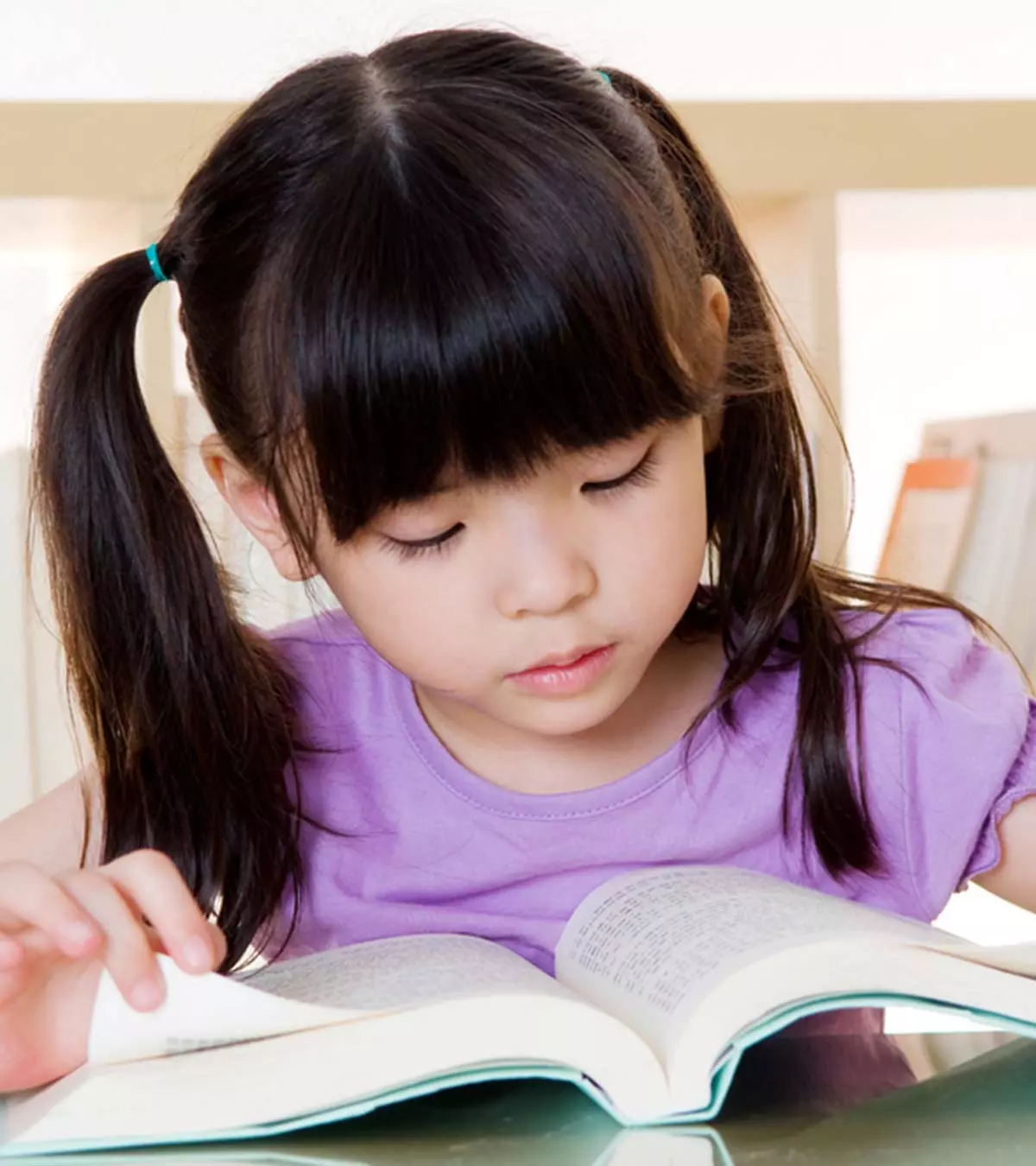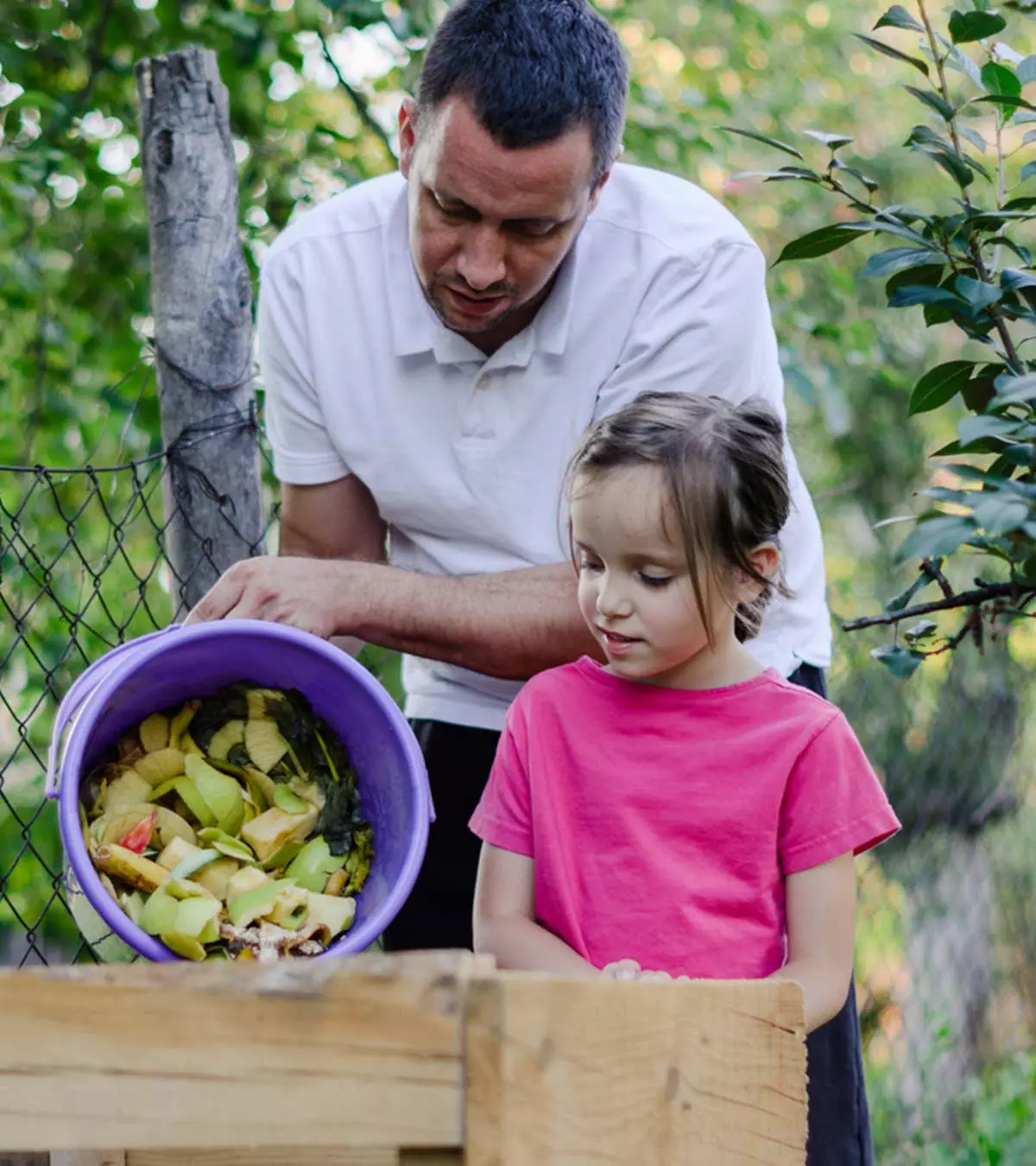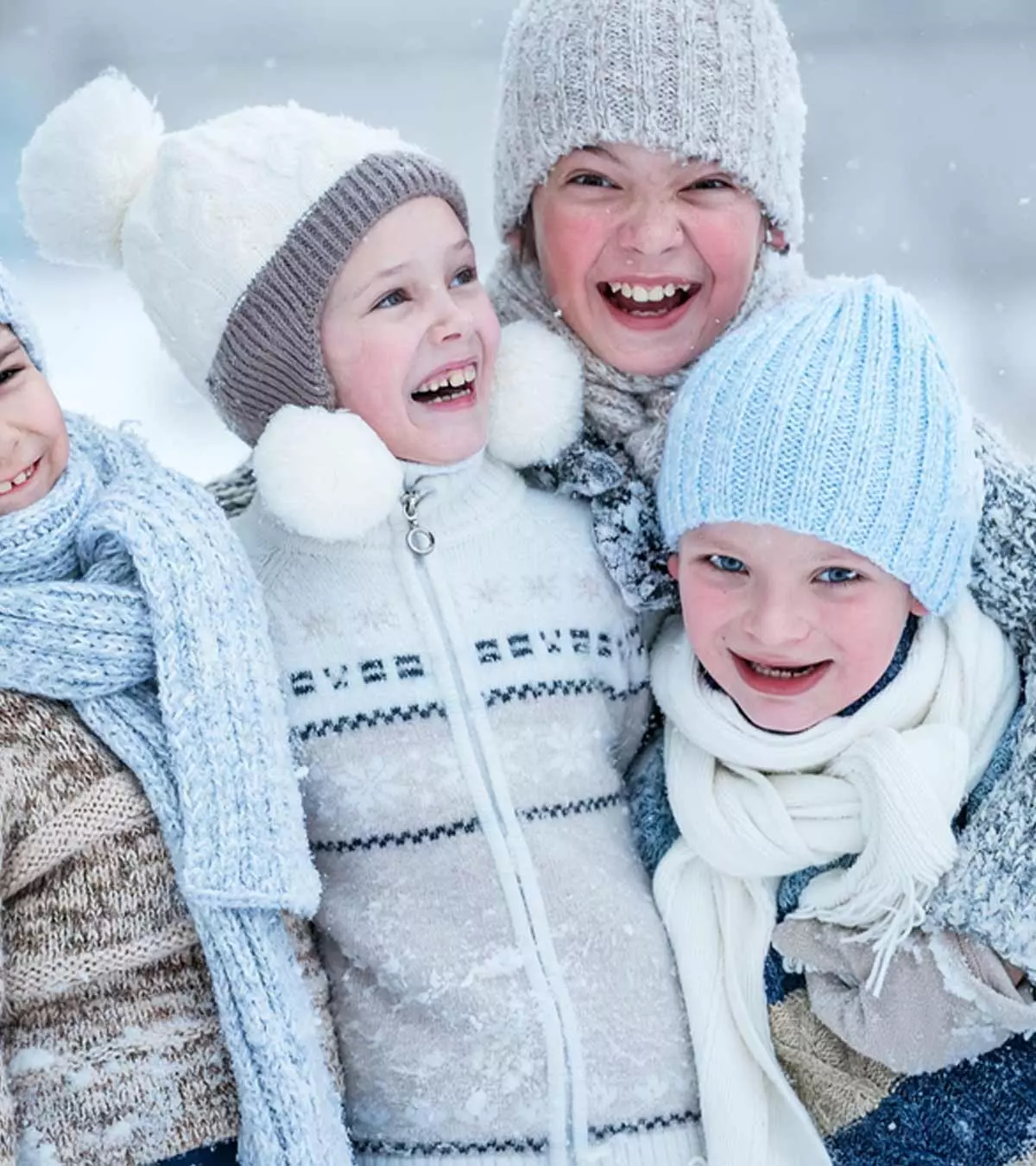
Image: Shutterstock
It’s difficult for parents to keep their children entertained and indoors during the winter holiday. To help you keep your kids engaged and entertained, we bring you some winter poems for kids. Poems can assist kids in improving their linguistic abilities while also allowing them to dream about lovely winter nights full of frost and icicles. Winter is a preferred season for many because of the misty tree leaves, the foggy mornings, the cool breeze, the shorter days and longer nights, and the white snow. Outdoor activities like sledding, skiing, and making snow angels are sure to get your children excited. It is also the season for wearing sweaters, a scarf, mittens, snowshoes, and other woolen clothing as it gets chilly outside. Also, the Christmas and New Year celebrations make this season extra special. So during a snowstorm or blizzard, turn on your fireplace and plunge into this post over some hot cocoa for some beautiful poems glorifying the winter season that you can share with your kids.
Famous Winter Poems For Children
1. The Frosted Pane
When I wakened, very early,
All my window-pane was pearly
With a sparkling little picture traced in lines of shining white;
Some magician with a gleaming
Frosty brush, while I was dreaming,
Must have come and by the starlight worked through all the quiet night.
He had painted frosty people,
And a frosty church and steeple,
And a frosty bridge and river tumbling over frosty rocks;
Frosty mountain peaks that glimmered,
And fine frosty ferns that shimmered,
And a frosty little pasture full of frosty little flocks.
It was all touched in so lightly
And it glittered, oh, so whitely,
That I gazed and gazed in wonder at the lovely painted pane;
Then the sun rose high and higher
With his wand of golden fire
Till, alas, my picture vanished and I looked for it in vain!
—Evaleen Stein
2. Winter Time
Late lies the wintry sun a-bed,
A frosty, fiery sleepy-head;
Blinks but an hour or two; and then,
A blood-red orange sets again.
Before the stars have left the skies,
At morning in the dark I rise;
And shivering in my nakedness,
By the cold candle, bathe and dress.
Close by the jolly fire I sit
To warm my frozen bones a bit;
Or with a reindeer-sled, explore
The colder countries round the door.
When to go out, my nurse doth wrap
Me in my comforter and cap;
The cold wind burns my face, and blows
Its frosty pepper up my nose.
Black are my steps on silver sod;
Thick blows my frosty breath abroad;
And tree and house, and hill and lake,
Are frosted like a wedding cake.
—Robert Louis Stevenson
3. Talking In Their Sleep
“You think I am dead,”
The apple tree said,
“Because I have never a leaf to show—
Because I stoop,
And my branches droop,
And the dull gray mosses over me grow!
But I’m still alive in trunk and shoot;
The buds of next May
I fold away—
But I pity the withered grass at my root.”
“You think I am dead,”
The quick grass said,
“Because I have parted with stem and blade!
But under the ground,
I am safe and sound
With the snow’s thick blanket over me laid.
I’m all alive, and ready to shoot,
Should the spring of the year
Come dancing here—
But I pity the flower without branch or root.”
“You think I am dead,”
A soft voice said,
“Because not a branch or root I own.
I never have died, but close I hide
In a plumy seed that the wind has sown.
Patient I wait through the long winter hours;
You will see me again—
I shall laugh at you then,
Out of the eyes of a hundred flowers.
—Edith Matilda Thomas
4. Picture Books In Winter
Summer fading, winter comes—
Frosty mornings, tingling thumbs,
Window robins, winter rooks,
And the picture story-books.
Water now is turned to stone
Nurse and I can walk upon;
Still, we find the flowing brooks
In the picture story-books.
All the pretty things put by,
Wait upon the children’s eye,
Sheep and shepherds, trees and crooks,
In the picture story-books.
We may see how all things are
Seas and cities, near and far,
And the flying fairies’ looks,
In the picture story-books.
How am I to sing your praise,
Happy chimney-corner days,
Sitting safe in nursery nooks,
Reading picture story-books?
—Robert Louis Stevenson
5. The First Sleigh-Ride
O happy time of fleecy rime
And falling flakes, and O
The glad surprise in the baby eyes
That never saw the snow!
Down shining ways the flying sleighs
Go jingling by, and see!
Beside the gate, the horses wait
And neigh for you and me!
—Sara Teasdale
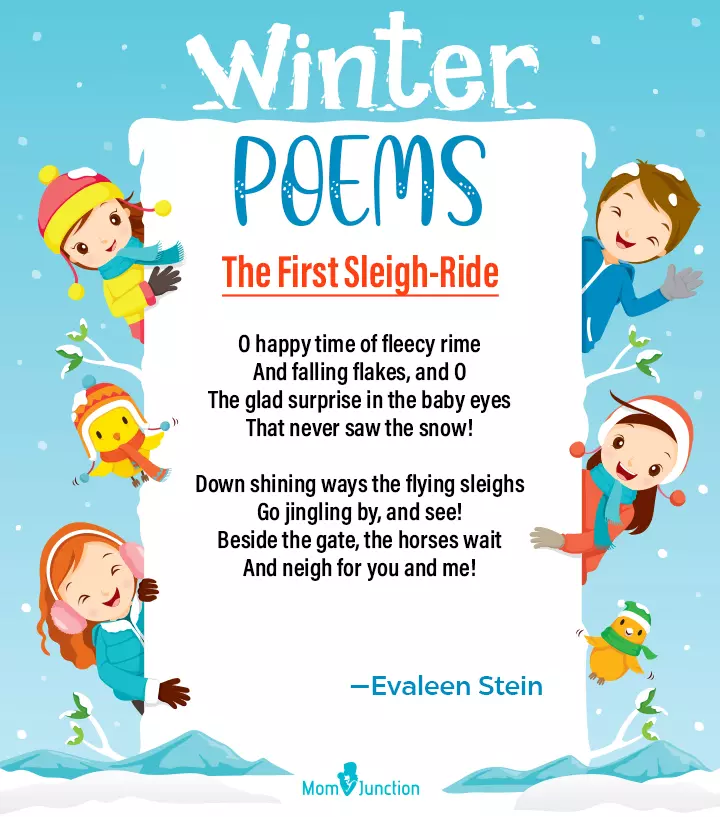
6. Snowflakes
Out of the bosom of the Air,
Out of the cloud-folds of her garments shaken,
Over the woodlands brown and bare,
Over the harvest-fields forsaken,
Silent and soft and slow
Descends the snow.
Even as our cloudy fancies take
Suddenly shape in some divine expression,
Even as the troubled heart doth make
In the white countenance confession,
The troubled sky reveals
The grief it feels.
This is the poem of the air,
Slowly in silent syllables recorded;
This is the secret of despair,
Long in its cloudy bosom hoarded,
Now whispered and revealed
To wood and field.
—Henry Wadsworth Longfellow
 Did you know?
Did you know?7. The Little Fir Trees
Hey! little evergreens,
Sturdy and strong!
Summer and autumn time
Hasten along;
Harvest the sunbeams, then,
Bind them in sheaves,
Range them, and change them
To tufts of green leaves.
Delve in the mellow mold,
Far, far below,
And so,
Little evergreens, grow!
Grow, grow!
Grow, little evergreens, grow!
Up, up so airily
To the blue sky,
Lift up your leafy tips
Stately and high;
Clasp tight your tiny cones,
Tawny and brown;
By and by, buffeting
Rains will pelt down;
By and by, bitterly
Chill winds will blow;
And so,
Little evergreens, grow!
Grow, grow!
Grow, little evergreens, grow!
Gather all uttermost
Beauty, because,–
Hark, till I tell it now!
How Santa Claus,
Out of the northern land,
Over the seas,
Soon shall come seeking you,
Evergreen trees!
Seek you with reindeer soon,
Over the snow;
And so,
Little evergreens, grow!
Grow, grow!
Grow, little evergreens, grow!
What if the maples flare
Flaunting and red,
You shall wear waxen white
Tapers instead!
What if now, other where,
Birds are beguiled,
You shall yet nestle
The little Christ-child!
Ah! the strange splendor
The fir-trees shall know!
And so,
Little evergreens, grow!
Grow, grow!
Grow, little evergreens, grow!
—Evaleen Stein
8. Thaw
The snow is soft,
and how it squashes!
“Galumph, galumph!”
go my galoshes.
—Eunice Tietjens
9. Winter
The street cars are
Like frosted cakes—
All covered up
With cold snowflakes.
The horses’ hoofs
Scrunch on the street;
Their eyelashes
Are white with sleet.
And everywhere
The people go—
With faces TICKLED
By the snow
—Dorothy Aldis

10. The North Wind Doth Blow
The north wind doth blow,
And we shall have snow,
And what will the poor Robin do then?
Poor thing!
He’ll sit in a barn,
To keep himself warm,
And hide his head under his wing,
Poor thing!
—Tasha Tudor
 Quick fact
Quick fact11. Snow Day
Today we woke up to a revolution of snow,
its white flag waving over everything,
the landscape vanished,
not a single mouse to punctuate the blankness,
and beyond these windows
the government buildings smothered,
schools and libraries buried, the post office lost
under the noiseless drift,
the paths of trains softly blocked,
the world fallen under this falling.
In a while, I will put on some boots
and step out like someone walking in water,
and the dog will porpoise through the drifts,
and I will shake a laden branch
sending a cold shower down on us both.
But for now I am a willing prisoner in this house,
a sympathizer with the anarchic cause of snow.
I will make a pot of tea
and listen to the plastic radio on the counter,
as glad as anyone to hear the news
that the Kiddie Corner School is closed,
the Ding-Dong School, closed.
the All Aboard Children’s School, closed,
the Hi-Ho Nursery School, closed,
along with—some will be delighted to hear—
the Toadstool School, the Little School,
Little Sparrows Nursery School,
Little Stars Pre-School, Peas-and-Carrots Day School
the Tom Thumb Child Center, all closed,
and—clap your hands—the Peanuts Play School.
So this is where the children hide all day,
These are the nests where they letter and draw,
where they put on their bright miniature jackets,
all darting and climbing and sliding,
all but the few girls whispering by the fence.
And now I am listening hard
in the grandiose silence of the snow,
trying to hear what those three girls are plotting,
what riot is afoot,
which small queen is about to be brought down.
—Billy Collins
12. Places [III. Winter Sun]
There was a bush with scarlet berries,
And there were hemlocks heaped with snow,
With a sound like surf on long sea-beaches
They took the wind and let it go.
The hills were shining in their samite,
Fold after fold they flowed away;”
Let come what may,” your eyes were saying,
“At least we two have had to-day.”
—Sara Teasdale
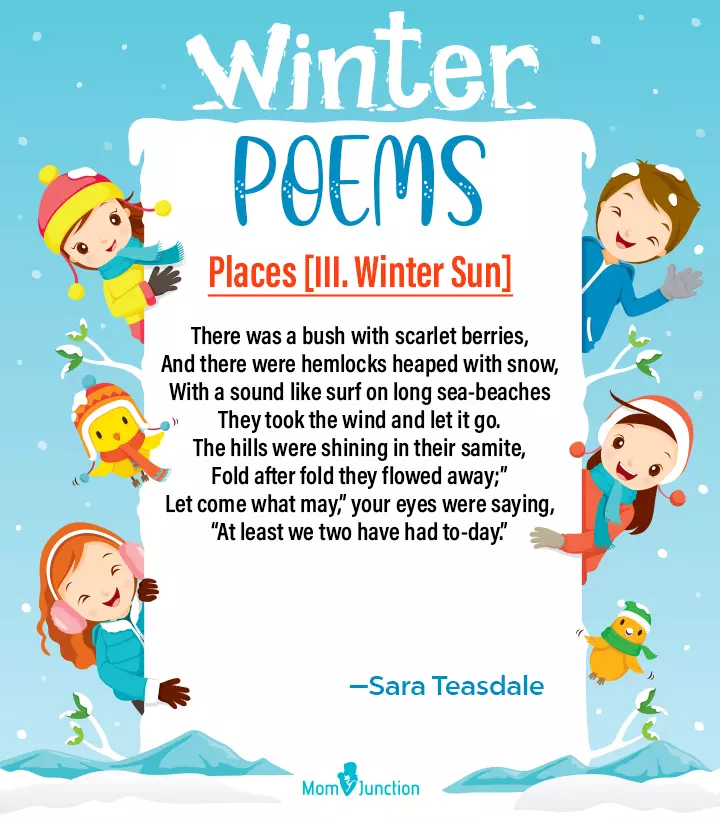
Contemporary Winter Poems For Children
13. Winter You Have Come
Winter, winter you have come,
Very cold has the weather become.
There is snow in the northern places,
Many things on earth it replaces.
I wonder how snow feels like,
but to see snow, I might have to hike.
It’s very cold at night,
So, hot chocolate is a delight.
The night is long, and the days are short,
And frozen is the port.
Bears and frogs are having their sweet dreams,
While I am sitting near a pot that is steaming.
Winter, winter you have come,
Very cold has the weather become.
—Rudra A
14. Snowflakes
Snowflakes spill from heaven’s hand
Lovely and chaste like smooth white sand.
A veil of wonder laced in light
Falling Gently on a winters night.
Graceful beauty raining down
Giving magic to the lifeless ground.
Each snowflake like a falling star
Smiling beauty that’s spun afar.
Till earth is dressed in a robe of white
Unspoken poem the hush of night
—Linda A. Copp
15. Chubby Snowman
There was a chubby snowman
And he had a carrot nose
Along came a bunny
And what do you suppose?
The hungry little bunny
Was looking for his lunch
He grabbed that snowman’s carrot nose
NIBBLE! NIBBLE! CRUNCH!!
—Petersburg Children’s Center in Petersburg, Alaska
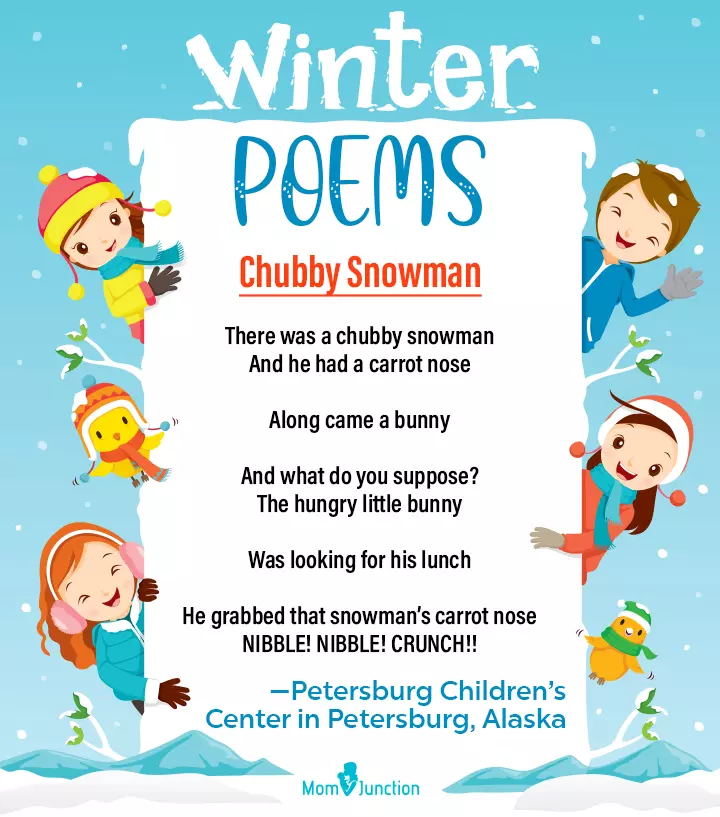
16. Five Little Snowflakes
One little snowflake with nothing to do.
Along came another and
Then there were two.
Two little snowflakes laughing with me.
Along came another, and
Then there were three.
Three little snowflakes looking for some more.
Along came another, and
Then there were four.
Four little snowflakes dancing a jive.
Along came another, and
Then there were five.
Five little snowflakes having so much fun.
Out came the sun, and
Then there were none!
—Leanne Guenther
Illustration: Winter Poems For Kids To Celebrate The Snowy Season

Image: Stable Diffusion/MomJunction Design Team
Frequently Asked Questions
1. How do winter poems help children understand and appreciate the season’s beauty?
Winter poems use words and phrases that evoke imagery and emotions associated with winter. The descriptive language of these poems helps create a vivid image of winter days and nights. These attributes of a winter poem can help children appreciate the season.
2. Can winter poems be used to teach poetry and creative writing to children?
Yes, winter poems for children can be an effective tool for teaching poetry and creative writing in schools. They can help children develop their language skills, stimulate their imagination, and learn poetic techniques such as rhyme and imagery.
3. What are some tips for selecting appropriate winter poems for kids?
Choose age-appropriate poems that vividly describe the season’s beauty, such as snowflakes and snowmen, in simple words that children can easily comprehend. You may also pick rhyming poems for kids with interesting wordplay and rhythm to build children’s interest. If you are using a poetry book to read the poem to children, pick ones with elaborate elaborations to bolster the child’s creativity and imagination while evoking a range of emotions.
4. What are some of the common themes found in winter poems for kids?
Winter poems for kids explore common themes that capture the season’s essence. For instance, they celebrate the beauty and joy of snowflakes falling from the sky. They portray the tingling sensation of chilly air, the sight of frosty breath on crisp winter mornings, and the cozy warmth felt when nestled indoors. They artfully capture the exhilaration of engaging in favorite winter activities, such as sledding, building snowmen, or having friendly snowball fights. Through heartfelt verses, these poems convey a sense of comfort and contentment that one may experience with the sight of the magical ambiance of the nighttime winter sky.
5. How can winter poems help children better understand the history and culture of their region?
Winter poems often depict the beauty and challenges of the winter season, such as snowfall, icy landscapes, or the hibernation of animals. Children can develop a deeper connection with their natural surroundings by reading and analyzing these poems. In addition, many regions have specific traditions, customs, or festivals associated with winter. Winter poems often reflect these traditions and help children gain insights into their region’s cultural heritage.
6. Why does poetry matter for kids?
Poetry helps children identify individual sounds, sequences, and patterns in words. It helps kids learn and understand new words and identify the subtle differences in similar-sounding words. Besides their linguistic skills, poetry influences their creativity and helps them develop a love for language (3).
7. How can parents encourage their children to write their own winter poems?
To motivate your kids to write winter poems, take them outdoors to observe and explore their surroundings. Help them write down their inspirations, such as the falling snow, the warmth of the fireplace, and the light from Christmas shops. You could also give them creative writing prompts or let them describe their favorite winter activity and have fun discussing poems with them.
Winters are the perfect time to gather children around a fire and tell them stories and poems. Poetry has the added effect of expressing deep meanings in a few lines that can take you to a whole new world. These winter poems for kids talk about the beauty of snowflakes, the fun with snowmen, and the warm delicacies to go with them. They are sure to mesmerize children and help them develop their vocabulary and language skills. Read these English poems for kids out loud with your child while enjoying a hot bowl of soup.
Key Pointers
- Writing or reading winter poems can help children engage in creative activities when staying indoors during the season.
- Reading and discussing winter poems helps expand their vocabulary and hone their linguistic skills.
- Snow activities and the chilly weather are some common themes in winter poetry that children relate to the most.
- Sharing winter poems with children can help them better appreciate their cultural heritage.
- Reading winter poems while enjoying warm treats encourages bonding and creates cherished memories.
Explore the magical world of winter snow! From snowflakes to snowmen, here are some popular poems in English for kids dedicated to the special time of the year
References
- Longfellow’s Life & Legacy.
https://www.nps.gov/long/learn/education/upload/Longfellow-s-Life-Legacy-Part-2.pdf - The North Wind Doth Blow.
https://wordsforlife.org.uk/activities/the-north-wind-doth-blow/ - How Does Poetry Help Children’s Development?
https://www.firstfivenebraska.org/blog/celebrating-poetry-month/
Community Experiences
Join the conversation and become a part of our nurturing community! Share your stories, experiences, and insights to connect with fellow parents.
Read full bio of Dr. Neha Mehta
Read full bio of Sravani Rebbapragada
Read full bio of Harshita Makvana







